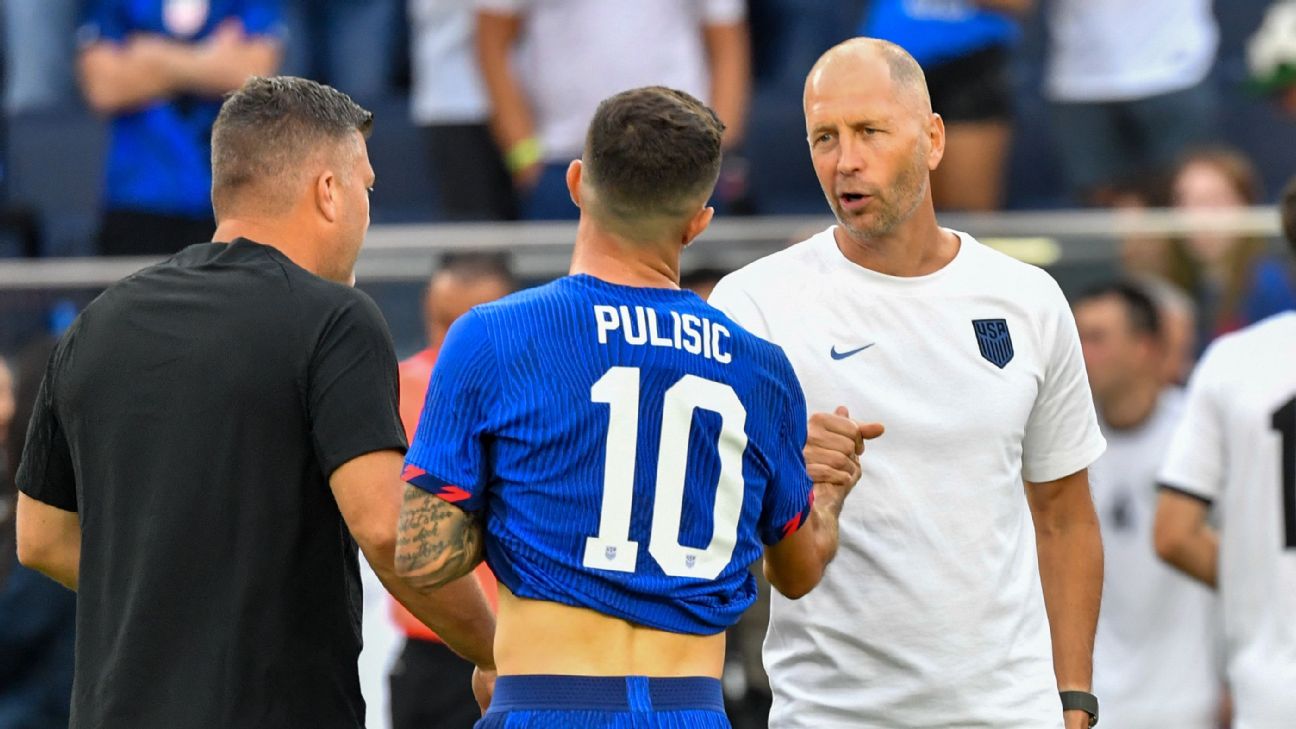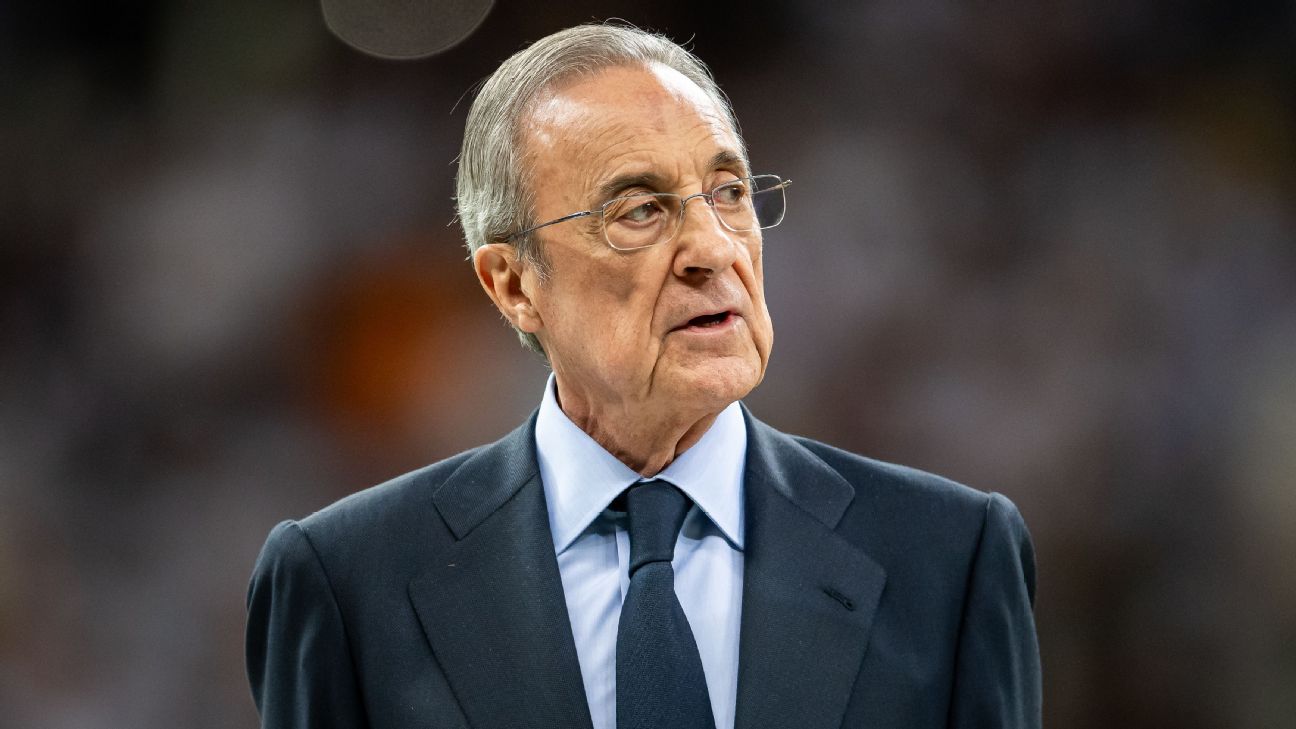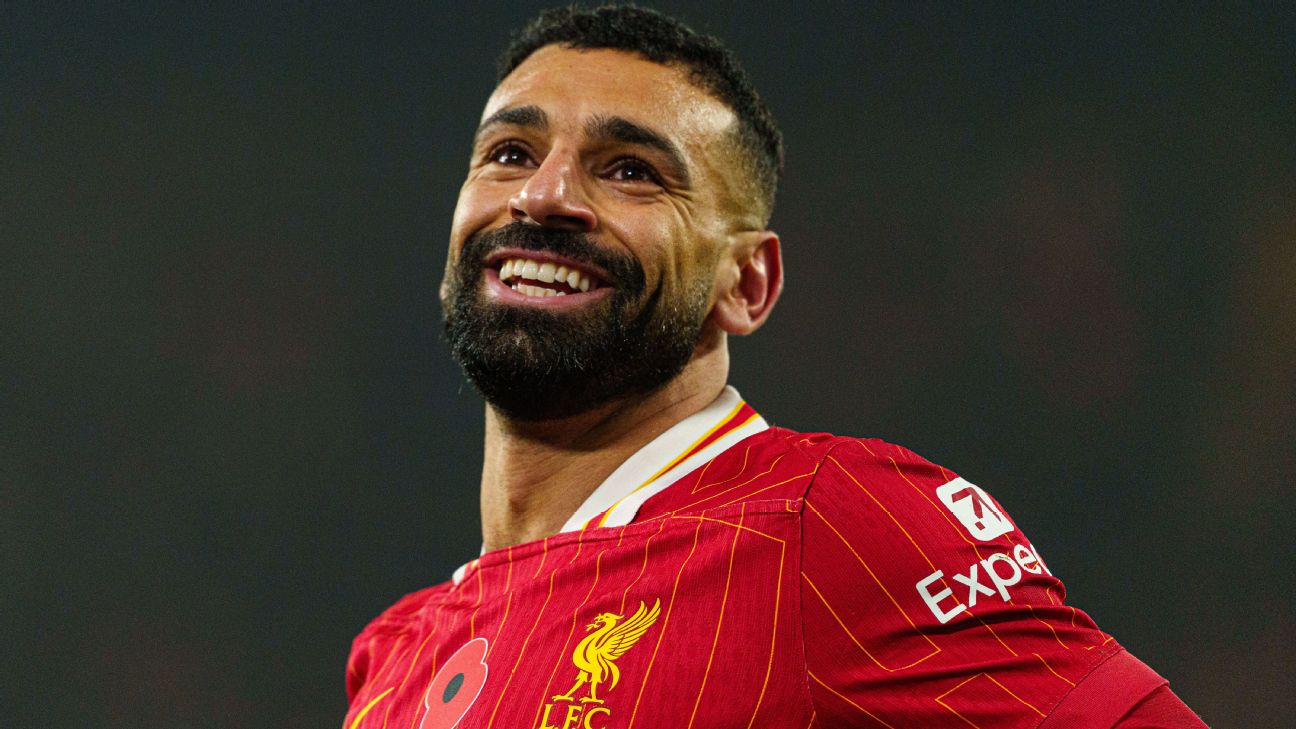ST. LOUIS — Gregg Berhalter praised the mindset of his U.S. men’s national team in the last 10 minutes of the 3-0 win over Uzbekistan, but admitted that there was plenty of room for improvement after his first game back as head coach.
The U.S. jumped on top in the fourth minute thanks to Tim Weah’s goal, but then labored for much of the match, as Uzbekistan’s five-man backline proved difficult to break down.
– Stream on ESPN+: LaLiga, Bundesliga, more (U.S.)
– Carlisle: Player ratings from USMNT’s win over Uzbekistan
It took a goal in the first minute of second-half stoppage time from substitute Ricardo Pepi to make the game safe, before Christian Pulisic scored from the penalty spot four minutes later to complete the scoring. Both of the late goals came with Uzbekistan reduced to 10 men after Khojiakbar Alidzhanov was forced to leave the match with an injury, and with the visitors out of substitutes.
“I think we use this game as a learning tool,” Berhalter said. “We can improve and we need to improve and we will.”
“I really, really liked the mindset in the last 10 minutes of the game,” he added. “You could see the guys still wanted to push. It wasn’t about holding onto the 1-0. It was about getting aggressive. As they moved to a back four, we had more space and I liked that the guys wanted to attack it.
“I think that it’s a good baseline for us to start and say this is what international competition from other regions looks like and so that we use as we go.”
The U.S. was made to work hard for its victory. Both Alijonov and Eldor Shomurodov had some clear chances to pull Uzbekistan level, but both were undone by the combination of wayward finishing as well as some stellar goalkeeping from Matt Turner.
Berhalter explained that he instituted a tactical wrinkle to try and draw Uzbekistan out of its low block, but that his team didn’t play quickly enough once the first line of pressure was broken.
“We gave the ball away in some tough spots. That was the first thing,” he said. “The second thing is when we were building, we were methodical about our buildup trying to attract the opponent. I thought then we lacked the speeding up the attack once we broke through that front five and that could have been better.
“A back five is always difficult to break down. You saw that they just dropped and we wanted to get behind ’em. We didn’t do that often enough.
“And then the other thing I’d note is that our press after [losing possession], defensive transition, needs to get better. I think we gave them too many opportunities to get behind us when we could have been positioned better to win the ball immediately after we lost it.”
Berhalter added that he didn’t mind his side playing with a slower rhythm as long as it’s accompanied by a change of pace.
“If we had to take our time to draw out their defense, and then find someone once we break their top five, then we need to speed up the attack,” he said. “We need to have numbers getting forward, we need numbers entering the penalty box, we need runs behind the backline and I thought that’s what we lacked at times.”
Saturday’s match was the first for Berhalter since last December’s World Cup in Qatar. Shortly after the tournament, a public feud with the family of midfielder Gio Reyna resulted in the revealing of a domestic violence incident from 1992 that involved Berhalter and his now wife Rosalind. An investigation by an outside law firm largely cleared Berhalter, allowing him to still be a candidate to manage the USMNT. He re-signed with U.S. Soccer in June.
Berhalter said that he only allowed himself a brief moment to reflect on all that transpired over the last nine months.
“At the anthem you reflect on it a little bit that you’re back, he said. “And then it’s back to work, and you’re on the sidelines and you’re coaching, trying to help the team win a game.”



